Last Updated on December 27, 2024 by Michelle
Before diving into this in-depth list of tips for using fresh flour, be sure you Enter to Win a FREE Grain Mill, right here. And check out this amazing Real Ingredients Giftaway that also includes a grain mill!
Lisa Bass and Michelle Visser share tips for using fresh milled flour in this conversation. Join us on youtube, your favorite podcast player, or just read all the details below.
Lisa Bass is a mom of 8 who is passionate about homeschooling, homesteading, and making real food for her family. So I loved chatting all things fresh flour with Lisa, with a little homeschooling and fun personal facts on the side.
Let’s dive into some tips for Using Fresh Milled Flour
I try to always explain the WHY behind fresh milled flour before I explain the HOW. I went deep into that first part right here:
Why You Should Grind Your Own Flour
Now let’s answer some commonly asked questions about using fresh milled flour. Listen to episode 102 with Lisa Bass right here. Or read on. Or watch on youtube:
Is it cheaper to mill your own flour?
Yes, if you run the numbers, you will always find milling your own flour is cheaper than either buying top-of-the-line breads made with fresh milled flour (if you can even find any!) or using the best organic flour you can find, which will still be drastically lacking in nutrients compared to your fresh milled flour.
A few years ago I ran the numbers when I wrote about Why I Started Milling My Own Flour. I discovered that my mill paid for itself in about 9 months, then every year thereafter I save about $400 by milling my own fresh flour instead of purchasing flour. I break down my cost-benefit analysis right here.
How do I substitute fresh milled flour for store bought?
How long is fresh milled flour good for?
Keeping fresh milled bread fresh
Extra bread that you’re not going to eat in 4-5 days can go in a freezer-safe ziploc bag in your freezer. It won’t be ideal texture after defrosting, so you might want to use this bread for toast, french toast, souffle, or bread crumbs (see below).
I like to slice my bread before freezing it, so it’s easy to pop out one piece at a time for toasting, whenever needed.
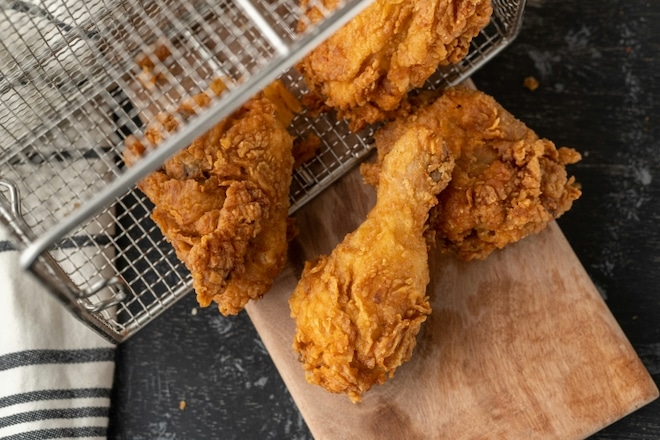
Making fried chicken with fresh milled bread crumbs
If you have some older bread that you need to use up (or you can use fresh bread too) this recipe is perfect.
- Cut your bread into cubes and toast your bread cubes in the oven until crisp.
- Place toasted bread cubes in a blender until fine bread crumbs.
- Dip your boneless chicken breasts in egg, then your fresh breadcrumbs (seasoned with salt and any other herbs you would like), then fry your breaded chicken in tallow or lard.
Go here for my Complete Guide to Rendering Lard
Go here to see how Lard & Tallow compare.
Make bread crumbs with bread made from fresh milled flour
If you have some older bread that you need to use up (or you can use fresh bread too) make bread crumbs!
- Cut your bread into cubes and toast your bread cubes in the oven until crisp.
- Place toasted bread cubes in a blender until fine bread crumbs.
- Mix in salt and herbs, or leave plain and season as needed when using them.
- Store in a sealed glass jar.
Use bread crumbs for meatloaf, fried chicken, eggplant parmesan, friend chicken (above), fried pork cutlets, making potato cakes, and lots more… anyway you’d use bread crumbs.
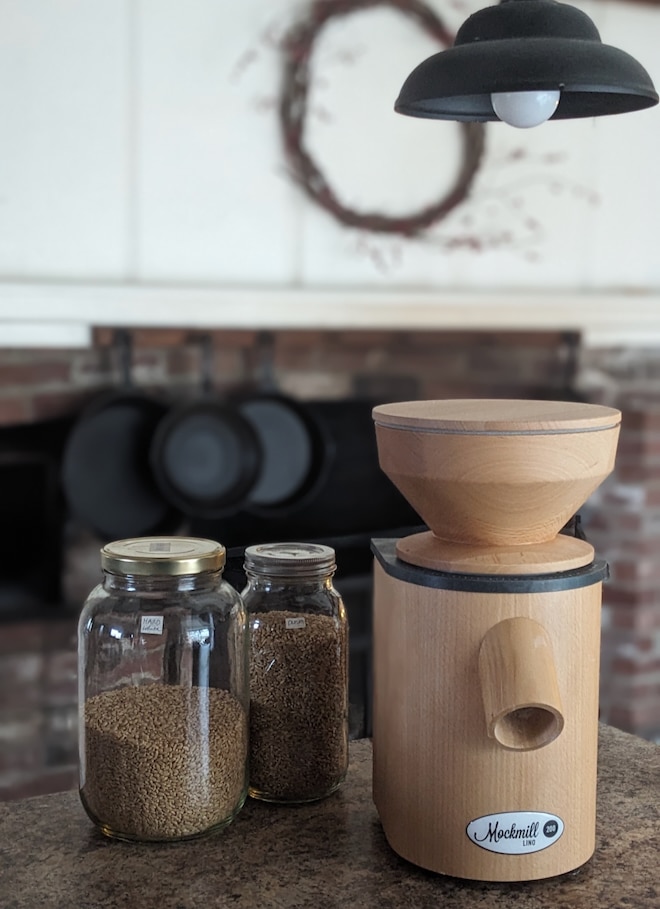
Choosing a flour mill
Go here for my Complete Guide to Choosing a Grain Mill.
I recommend all three of these, for different reasons:
Cleaning your grain mill
Rice flour gets your mill stones clean. But no need to toss that rice flour that results whenever you clean your stones! Keep the rice flour for dusting when you’re making cookies or dusting banneton liners. Just store it in a glass jar on your counter until you need it.
Does freshly milled flour taste different?
Fresh flour is loaded with nutrients and bran. It’s never going to taste the same as dead, nutrient-less, processed bread. It just isn’t. And honestly, that’s a good thing. Once you get comfortable with fresh flour in your kitchen, you learn to genuinely love the taste variations.
Why is my fresh milled bread so dense?
Most likely you need to sift out some bran. The bran is sharp and will cut into your gluten and keep it from forming. Sifting out some of that sharp bran will mean your bread can develop more gluten and rise better.
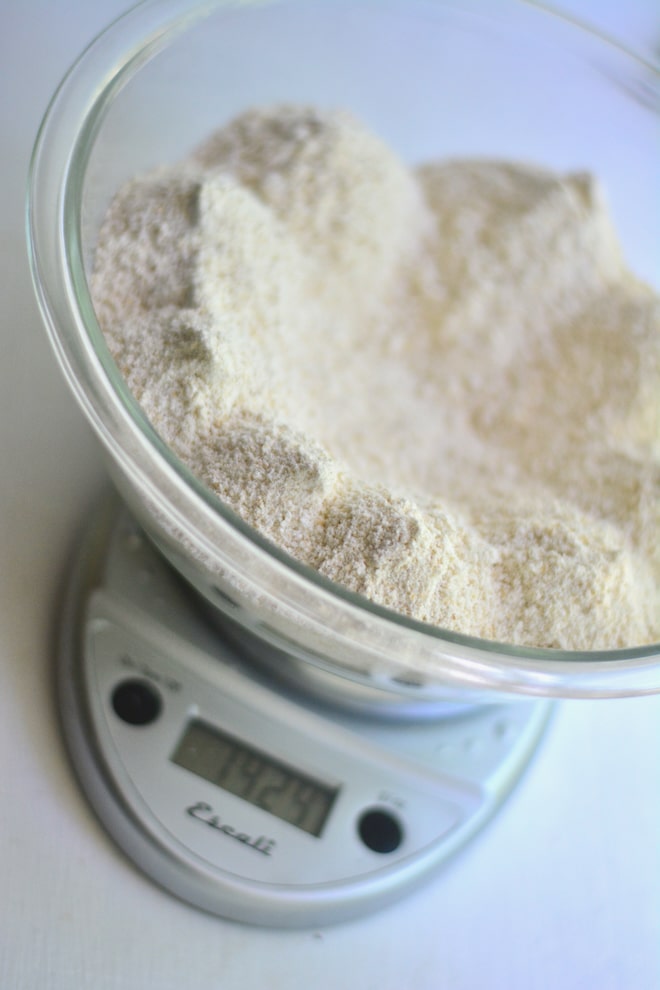
Tips for using fresh flour?
Because ancient grains, like einkorn and kamut, have different gluten structure, you’ll find they’re sometimes a little more difficult to learn to use. So consider starting with hard white wheat.
Also consider baking with part fresh flour, part enriched flour, gradually uping your ratio of fresh to store-bought, helping your family get used to the taste and texture difference while you learn to adjust on the baking end as well.
You’ll also find it easier to start with fresh milled flour for baked goods like cookies, with soft wheat berries, instead of trying to dive right into fresh milled flour bread.
Should I sift milled flour?
What else is included in this episode of the Simple Doesn’t Mean Easy podcast?
Tune in to episode 102 for some rapid fire questions to see behind-the-scenes with Lisa Bass. Her favorite music genre, favorite type of book, what she’s currently reading, favorite thing to watch, favorite way to “waste” time.
Lisa Bass is the creator of Farmhouse on Boone and the host of the Simple Farmhouse Life podcast
Listen in to the last episode when Lisa was a guest on the Simple Doesn’t Mean Easy podcast.
Learn More
Dive into one of Lisa’s in-depth Master Classes here:
Create Your Blog Dream & YouTube Success Academy
Recipes Using Fresh Flour
- Lasagna noodles with fresh flour
- Dinner rolls made with fresh flour
- Tortillas made with fresh flour
- Kamut chocolate chip cookies
And be sure to Download my FREE Pantry Checklist and all the discounts on the best ingredients
“Whether you eat or drink, or whatever you do, do it all for the glory of God.” 1 Cor. 10:31
Pin this for later!
Click on the image below to pin this post.
Find out why SoulyRested was considered to be one of the One of the Top Homesteading Blogs.
Glance at my Resource Page if you’d like to get a glimpse of all the supplies I use and recommend for everything from gardening, to homeschooling, to chicken care, to nature journaling, to maple syrup making.
I’d love to connect!
To find me in some other neck of the woods, just click any (or every!) icon below:


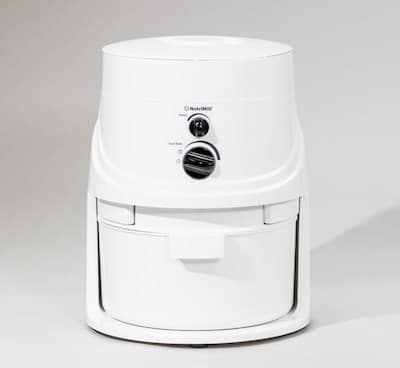
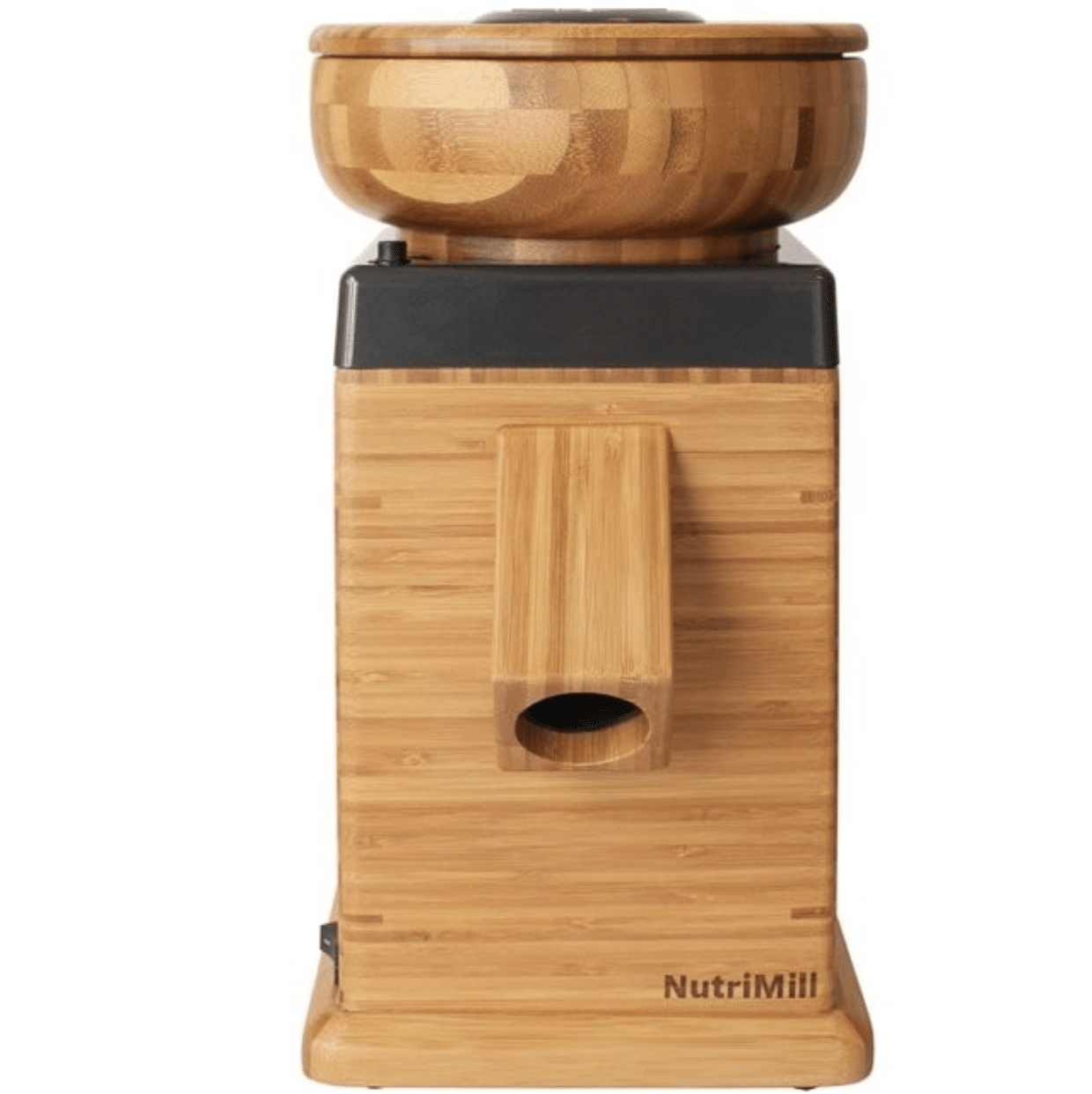
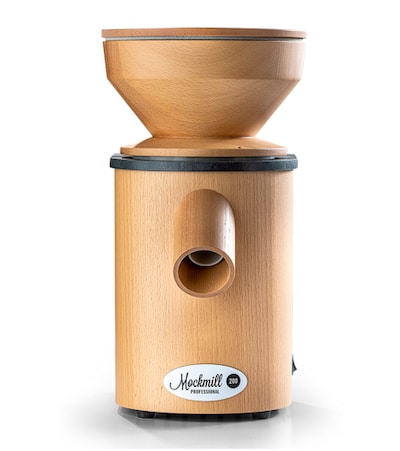
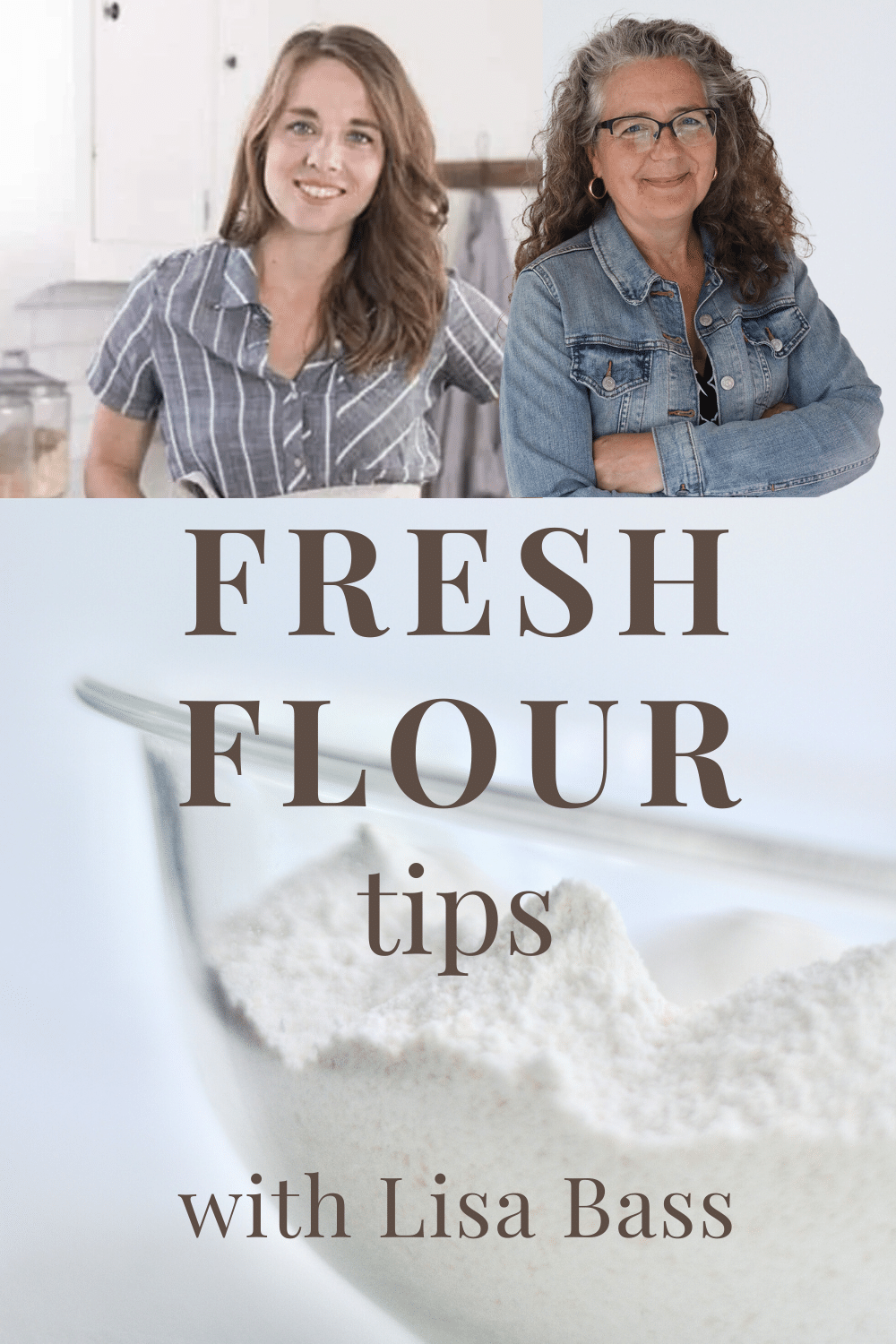





Hello
I just started using fresh milled flour, my breads are very dense, instead of fluffy and soft. I have heard a couple of things that say to sift it and add more liquid. If I add more liquid is there a conversion rate of how much liquid I should add?